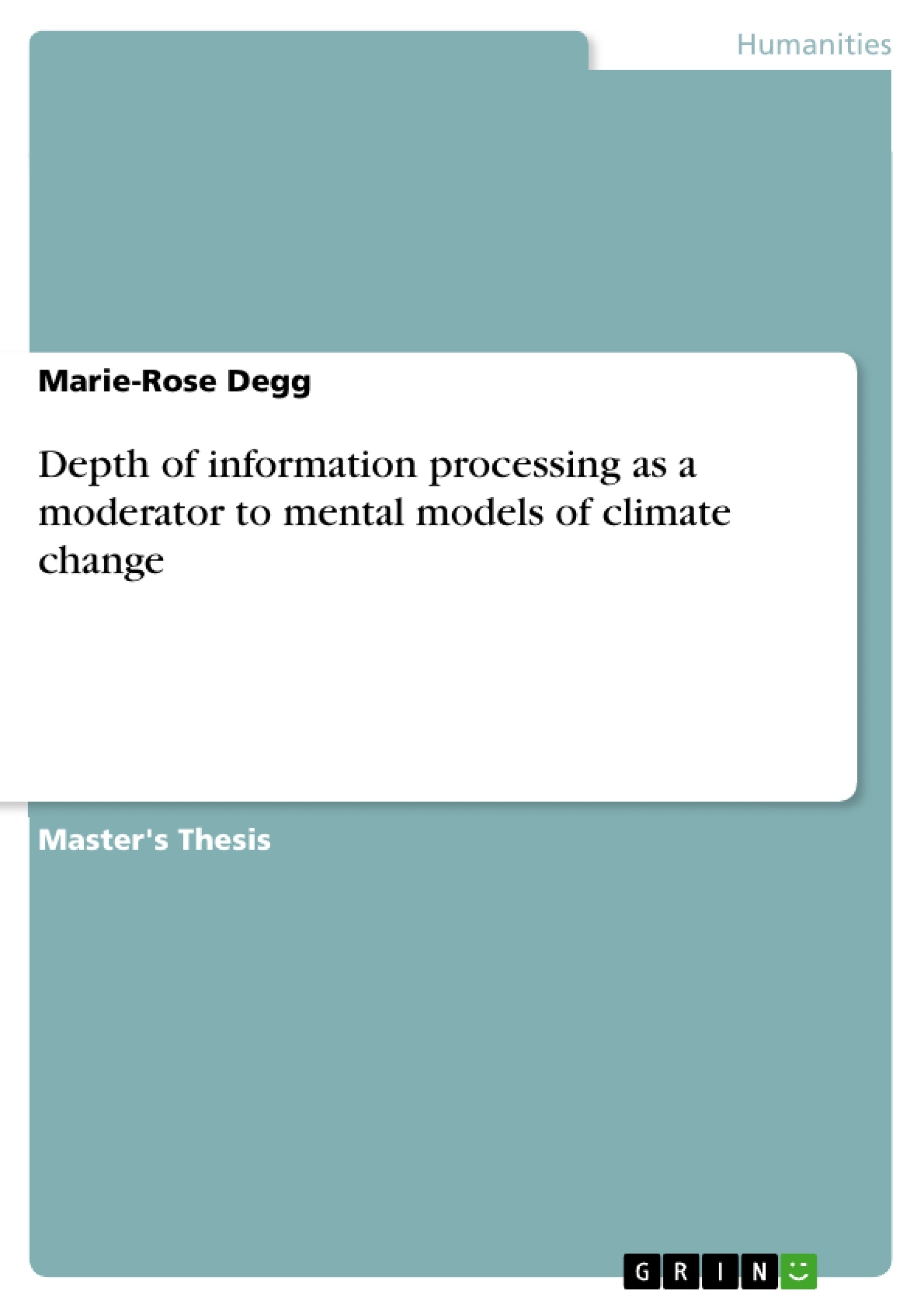In stock-flow relationships inflows and outflows of a stock accumulate over time. Previous studies have shown people’s poor understanding of accumulation. This study examines the relationship between performance in a stock-flow experiment and depth of information processing. Half of the participants read a text about the dangers of climate change to prompt deeper processing (and understanding) of the following stock-flow task. Then they were given one of two scenarios in which the atmospheric carbon dioxide level rose/fell from year 2000 and stabilized at a higher/lower level until the year 2100. They had to choose the correct carbon dioxide emissions and uptake trajectory in order to realize the development of the carbon dioxide level in their scenario. Performance was low. More than half of the participants chose emission trajecto-ries similar to the shape of the atmospheric carbon dioxide curve which is an indication for pattern matching. Giving participants information about the dangers of climate change did not increase their performance.
Inhaltsverzeichnis (Table of Contents)
- Introduction
- Theoretical background
- The carbon cycle
- The climate system
- Climate change
- Public beliefs about climate change
- Stock-flow processes
- Aim of this study and hypotheses
- Method
- Participants
- Task description
- Results
- Preliminary analyses
- Results regarding demographic variables
- Ordinal data
- Binary data
- Results regarding the hypotheses
- Qualitative analysis
- Discussion
Zielsetzung und Themenschwerpunkte (Objectives and Key Themes)
This study investigates the relationship between depth of information processing and mental models of climate change. The goal is to understand how people's understanding of stock-flow processes, particularly in relation to climate change, is influenced by the depth of information they process. The study seeks to identify potential barriers to accurate understanding of the climate system and to explore the effectiveness of interventions designed to promote deeper processing of information.
- Mental models of climate change
- Stock-flow processes and understanding of accumulation
- The impact of information processing depth on climate change understanding
- Cognitive heuristics and their role in climate change decision-making
- The significance of public understanding for climate change policy
Zusammenfassung der Kapitel (Chapter Summaries)
The first chapter provides an introduction to the topic of climate change, emphasizing its global significance and the urgency of addressing it. It highlights the role of the public's understanding of climate change in shaping policy decisions. The second chapter delves into the theoretical background, exploring the carbon cycle, the climate system, and the scientific consensus on climate change. It further examines public beliefs about climate change and introduces the concept of stock-flow processes, a crucial framework for understanding climate change dynamics. The third chapter outlines the methodology used in the study, detailing the participants, the task description, and the experimental design. The fourth chapter presents the results of the study, including analyses of participant demographics, performance on the stock-flow task, and the impact of information processing depth on the participants' understanding of climate change. The fifth chapter discusses the implications of the findings, drawing connections between the results, the theoretical framework, and previous research.
Schlüsselwörter (Keywords)
This study explores the connection between mental models of climate change, stock-flow processes, and the depth of information processing. Key terms include: climate change, accumulation, mental models, global warming, information processing, correlation heuristic, and carbon dioxide emissions. The study examines how people's understanding of these concepts influences their perception of climate change and their ability to make informed decisions regarding climate policy.
Frequently Asked Questions
What are stock-flow processes in the context of climate change?
Stock-flow processes refer to how inflows (emissions) and outflows (uptake) of carbon dioxide accumulate in a stock (the atmosphere) over time.
Why do people struggle to understand climate change dynamics?
Research shows that many people have poor mental models of accumulation, often using heuristics like "pattern matching" instead of understanding the underlying system.
Does providing information about the dangers of climate change improve understanding?
According to this study, giving participants information about the dangers did not increase their performance in predicting CO2 emission trajectories.
What is the "correlation heuristic" in climate decision-making?
It is a cognitive shortcut where people incorrectly assume that the output (atmospheric CO2) should look exactly like the input (emissions).
What was the performance level in the stock-flow experiment?
The performance was generally low, with more than half of the participants failing to choose the correct trajectories for emissions and uptake.
- Citar trabajo
- Marie-Rose Degg (Autor), 2017, Depth of information processing as a moderator to mental models of climate change, Múnich, GRIN Verlag, https://www.grin.com/document/448864



